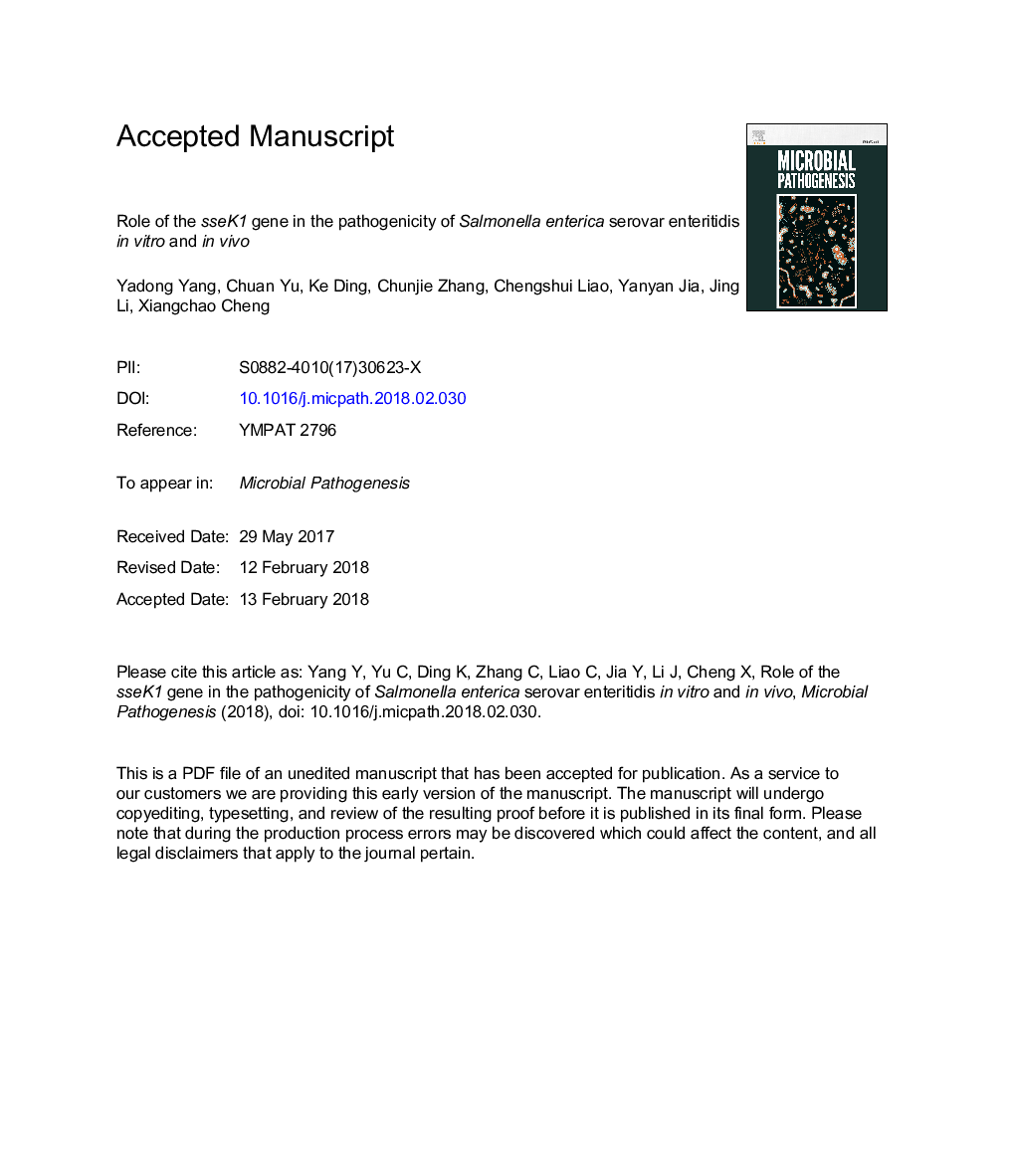| Article ID | Journal | Published Year | Pages | File Type |
|---|---|---|---|---|
| 8749662 | Microbial Pathogenesis | 2018 | 22 Pages |
Abstract
Salmonella enteritidis is a common food-borne pathogen associated with consumption of contaminated poultry meat and eggs, which frequently causes gastroenteritis in humans. Salmonella secreted effector K1 (SseK1), as a translocated and secreted protein has been identified to be essential for the virulence of Salmonella typhimurium in host cells. However, the role of the sseK1 gene in the pathogenicity of S. enteritidis remain unclear. In this study, a sseK1 deletion mutant of S. enteritidis was constructed and its biological characteristics were examined. It was found that the sseK1 deletion mutant did not affect the growth, adherence and invasion of Salmonella enteritidis when compared to the wild-type S. enteritidis. However, the mutant showed decreased formation of biofilm and significantly reduced intracellular survival of bacteria in activated mouse peritoneal macrophages, as well as showed reduced pathogenicity to a murine model by increasing the lethal dose 50% (LD50) value and decreasing the proliferation ratio of bacteria in vivo. Taken together, this study determined an important role for SseK1 in the pathogenicity of S. enteritidis in vitro and in vivo.
Related Topics
Life Sciences
Immunology and Microbiology
Microbiology
Authors
Yadong Yang, Chuan Yu, Ke Ding, Chunjie Zhang, Chengshui Liao, Yanyan Jia, Jing Li, Xiangchao Cheng,
